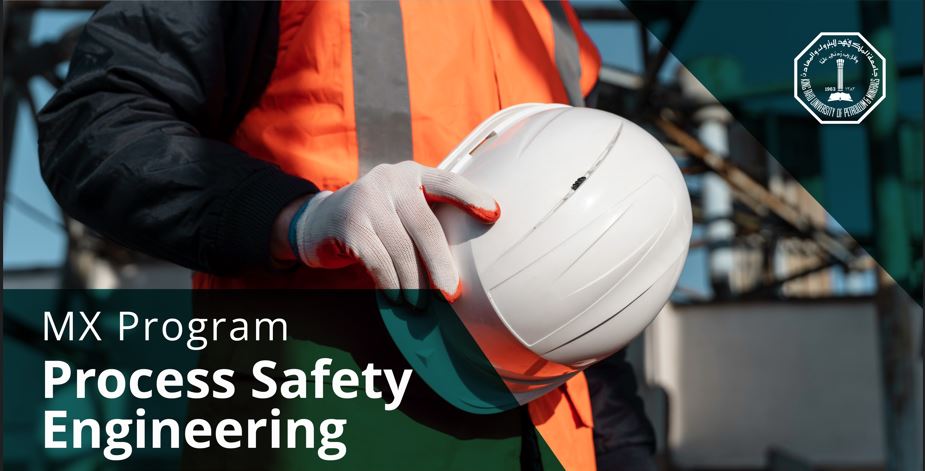
The current job market in Saudi Arabia shows a higher demand for safety related positions over general chemical roles. It indicates a robust emphasis on process safety aspects within the industry. This trend highlights the importance of process safety education and the potential for growth in this sector.
Program Objectives
Elevate your career with our MX Process Safety Engineering program at KFUPM. Gain expertise in advanced safety protocols, risk management, and hazard mitigation, tailored for the oil, gas, and petrochemical industries. Prepare to lead with cutting-edge skills and knowledge aligned with Saudi Vision 2030.
Learning Outcomes
Upon completion of this program, participants will be able to:
- Identify the fundamental scientific and engineering principles to solve the problems relevant to the refinery and petrochemical industry.
- Analyze the technologies involved in the refining and petrochemical industry.
- Evaluate the impact of engineering solutions in a global, economic, and societal context.
- Apply the best practices in safety, health, and environment.
- Apply new knowledge as needed, using appropriate learning strategies.
- Demonstrate the skills of scientific research writing and presentation.
Program Requirement:
- BSc in Engineering or in Science with relevent industial experiences'
Degree Plan:
Semester 1 (Fall)
- CHE 581: Process Safety Engineering
- ISE 581: Human Factor and Safety Psychology
Semester 2 (Spring)
- CHE 583: Process Hazard Analysis and Incident Investigation
- CHE 584: Fire & Toxic Release Analysis
Semester 3 (Fall)
- CHE 582: Occupational Safety Management
- CHE 585: Quantitative Risk Analysis
- CHE 619: Project
Semester 4 (Spring)
- CHE 586: Active Safeguard Design
- ISE 582: Safety Economics and Decision Making
- CHE 619: Project
Program Tuition Fee: Calculate
Duration: 2 Years
Delivery Mode: In-Person
Admission Requirements
To be eligible for the Master's program in Process Safety, applicants must hold a BSc in Engineering or in Science, equivalent to at least four years of higher education, from an accredited institution, with relevant industrial experience. A minimum Grade Point Average (GPA) of 2.50 on a 4.00 scale or its equivalent is required for admission. Alternatively, candidates with a Bachelor's degree in other scientific disciplines may also be considered, provided they have substantial industrial experience in the petroleum and petrochemical sectors. Such candidates will be subject to an interview to assess their suitability for the program.
- A recognized Bachelor's degree
- GPA of 2.5+ out of 4.0 or equivalent
- IELTS score of 6+ or TOEFL of 70+ (waived for KFUPM graduates)
- Two recommendation letters
APPLY NOW
Contact us
Tel: 013-860-2205
Email us at c-che@kfupm.edu.sa
More details are available at https://mx.kfupm.edu.sa/